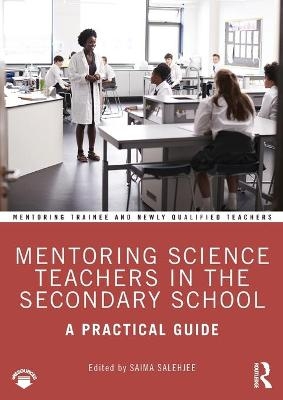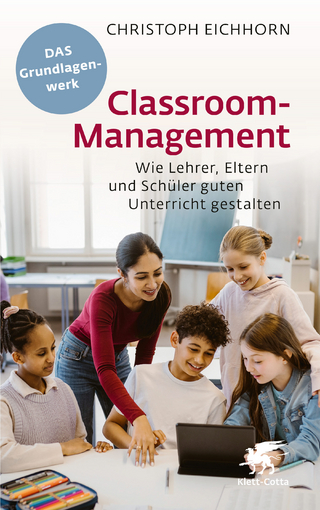
Mentoring Science Teachers in the Secondary School
Routledge (Verlag)
978-0-367-02312-6 (ISBN)
Together with analytical tools for self-evaluation, this book is a vital source of support and inspiration for all those involved in developing the next generation of outstanding science teachers. Key topics explained include:
• Roles and responsibilities of mentors
• Developing a mentor—mentee relationship
• Guiding beginning science teachers through the lesson planning, teaching and self-evaluation processes
• Observations and pre- and post-lesson discussions and regular mentoring meetings
• Supporting beginning teachers to enhance scientific knowledge and effective pedagogical practices
• Building confidence among beginning teachers to cope with pupils’ contingent questions and assess scientific knowledge and skills
• Supporting beginning teachers’ planning and teaching to enhance scientific literacy and inquiry among pupils
• Developing autonomous science teachers with an attitude to promote the learning of science for all the learners
Filled with tried-and-tested strategies based on the latest research, Mentoring Science Teachers in the Secondary School is a vital guide for mentors of science teachers, both trainee and newly qualified, with ready-to-use strategies that support and inspire both mentors and beginning teachers alike.
Saima Salehjee is a Lecturer in Chemistry Education at the University of Strathclyde, Glasgow. She is responsible for teaching and research work with particular emphasis on STEM education.
Introduction: A Practical Guide to Mentoring in Science Education SECTION 1 Foundations of Mentoring 1 Models of mentoring 2 About you as a mentor 3 Beginning science teachers’ expectations of their mentors 4 Accountabilities of a reflective mentor 5 Developing a mentor-mentee relationship SECTION 2 Basic Mentoring Practice 6 Supporting beginning teachers with lesson planning 7 Supporting beginning science teachers to teach and evaluate their lessons 8 Pre-lesson discussion, lesson observation and post-lesson discussions in mentoring beginning science teachers 9 Holding weekly mentoring meetings SECTION 3 Extending Basic Mentoring Practices 10 Supporting beginning teachers to develop pedagogical content knowledge 11 Supporting beginning teachers to cope with contingencies 12 Supporting beginning teachers to develop their ability to assess pupils 13 Supporting beginning teachers to link learning, memory and inquiry 14 Supporting a beginning teacher to apply features of the nature of science in their lessons 15 Supporting beginning teachers in embedding scientific literacy 16 Mentoring beginning teachers in implementing Process-Oriented Guided Inquiry Learning (POGIL): An example of an inquiry-based pedagogical approach of teaching science SECTION 4 Moving Beyond 17 Supporting a beginning teacher to become autonomous 18 Supporting a beginning teacher to implement extension and enrichment Chapter 19 Supporting beginning teachers to work with pupils with special educational needs and disability (SEND) Chapter 20 To conclude
| Erscheinungsdatum | 15.01.2021 |
|---|---|
| Reihe/Serie | Mentoring Trainee and Early Career Teachers |
| Zusatzinfo | 54 Tables, black and white; 10 Line drawings, black and white; 1 Halftones, black and white; 11 Illustrations, black and white |
| Verlagsort | London |
| Sprache | englisch |
| Maße | 174 x 246 mm |
| Gewicht | 453 g |
| Themenwelt | Sozialwissenschaften ► Pädagogik ► Schulpädagogik / Grundschule |
| Sozialwissenschaften ► Pädagogik ► Schulpädagogik / Sekundarstufe I+II | |
| ISBN-10 | 0-367-02312-1 / 0367023121 |
| ISBN-13 | 978-0-367-02312-6 / 9780367023126 |
| Zustand | Neuware |
| Informationen gemäß Produktsicherheitsverordnung (GPSR) | |
| Haben Sie eine Frage zum Produkt? |
aus dem Bereich


